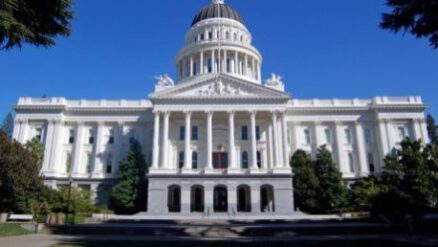California Governor Gavin Newsom signed a significant number of cannabis bills this year addressing a wide variety of concerns including the cannabis cultivation tax, employment discrimination, interstate agreements, medicinal cannabis access, insurance, packaging, labeling, beverages, veterinarians, resentencing, medical treatment, temporary events, social services, health care facilities & more.
Among the biggest news this year was Budget Trailer bill AB 195, signed in June, which eliminates the cannabis cultivation tax, shifts the point of collection & remittance for the cannabis excise tax from distributors to retailers, adjusts the labor peace agreement requirement from 20 employees to 10, and more.
Other cannabis bills, many of which were just signed in this month of September, include:
AB 1646 which authorizes cannabis beverages to be packaged in containers of any material that are clear or any color.
AB 1706 which helps get criminal convictions involving cannabis reduced or dismissed.
AB 1885 which prohibits the California Veterinary Medical Board from disciplining a veterinarian who recommends the use of cannabis on an animal for potential therapeutic effect or health supplementation purposes, unless the veterinarian is employed by or has an agreement with a cannabis licensee.
AB 1894 which places restrictions on the packaging, labeling, advertisement, and marketing of integrated cannabis vaporizers.
AB 1954 which prohibits a physician and surgeon from automatically denying treatment or medication to a qualified patient based solely on a positive drug screen for tetrahydrocannabinol (THC) or report of medical cannabis use without first completing a case-by-case evaluation of the patient that includes a determination that the qualified patient’s use of medical cannabis is medically significant to the treatment or medication.
AB 2155 which defines the term “cannabis beverages” as a form of edible cannabis product that is intended to be consumed in its final state as a beverage.
AB 2188 which amends the California Fair Employment and Housing Act to make it unlawful for an employer to discriminate against a person in hiring, termination, or any term or condition of employment, or otherwise penalize a person, if the discrimination is based upon the person’s use of cannabis off the job and away from the workplace or, with prescribed exceptions, upon an employer-required drug screening test that has found the person to have nonpsychoactive cannabis metabolites in their urine, hair, or bodily fluids.
AB 2210 which prohibits the DCC from denying an application for a state cannabis temporary event license solely on the basis that there is a license issued pursuant to the Alcoholic Beverage Control Act, and requires all on-and-off sale privileges of alcoholic beverages at the venue to be suspended for the duration of the event.
AB 2568 which provides it is not a crime for individuals and firms to provide insurance and related services to persons licensed to engage in commercial cannabis activity.
AB 2595 which requires the California State Department of Social Services to update all regulations relating to the investigation of a minor to ensure that, when a social worker is investigating an alleged case of child abuse or neglect, a parent’s use or possession of cannabis is treated in the same manner as a parent’s use or possession of alcohol and legally prescribed medication.
AB 2925 which requires a spending report from the California Department of Health Care Services concerning the Youth Education, Prevention, Early Intervention and Treatment Account.
SB 988 which repeals the requirement that health care facilities permitting patient use of medical cannabis comply with other drug and medication requirements and the requirement that those facilities be subject to enforcement actions by the State Department of Public Health.
SB 1186 which enacts the Medicinal Cannabis Patients’ Right of Access Act and prohibits a local jurisdiction from adopting or enforcing any regulation that prohibits the retail sale by delivery within the local jurisdiction of medicinal cannabis.
SB 1326 which authorizes the California Governor to enter into an interstate agreement authorizing medicinal or adult-use commercial cannabis activity between entities licensed under the laws of the other state (only when allowed by the federal government).
SB 1496 which makes various changes to existing law regarding the seizure of cannabis or cannabis products that are without evidence of tax payment, the payment of cannabis taxes by electronic funds, and the sharing of information by the CDTFA.
Read more about the various cannabis bills introduced in 2022, many of which did not pass, in the complete 2022 California Cannabis Law Legislative Update.
Contact us by phone or email to learn more about California cannabis law including state, county or city cannabis licensing and cannabis regulations, cannabis regulatory compliance, and cannabis litigation.


